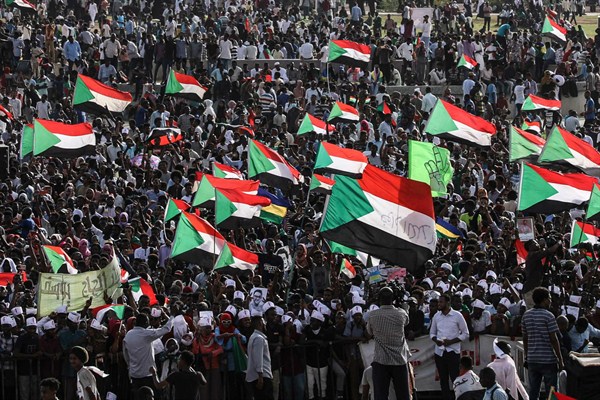A cast of foreign actors is seeking to shape Sudan’s incomplete political transition after the fall of longtime President Omar al-Bashir, each nudging it in the direction they favor. Their competing agendas are complicating negotiations between the ruling Transitional Military Council and civilians in the pro-democracy movement represented by the Forces for Freedom and Change. The two sides reached a major agreement on July 5 to jointly manage a three-year transition to civilian rule, and there was a recent breakthrough on Aug. 4, as they finalized that July deal and thrashed out its details. Yet the transition remains fragile and vulnerable to spoilers.
The involvement of so many outside powers in Sudan’s affairs underlines the country’s strategic importance, not only to its African neighbors but to the broader Red Sea region and the Persian Gulf. The danger for Sudan is that it could get sucked into geopolitical rivalries that do not serve its national interests, dashing the hopes of its citizens for a peaceful, democratic future.
It is a challenge to untangle the interests and strategies of the various actors currently engaged in Sudan because of the opaque way they operate and the fact that their Sudanese suitors are each pursuing their own, often conflicting, goals. Aligned with the military council—or elements within it—are a collection of authoritarian Gulf states and their allies, including Saudi Arabia, the United Arab Emirates and Egypt. Above all, these governments’ agendas are antithetical to democracy. They value what they consider to be stability and security in Sudan and instinctively view the military as their natural ally in achieving this objective.

